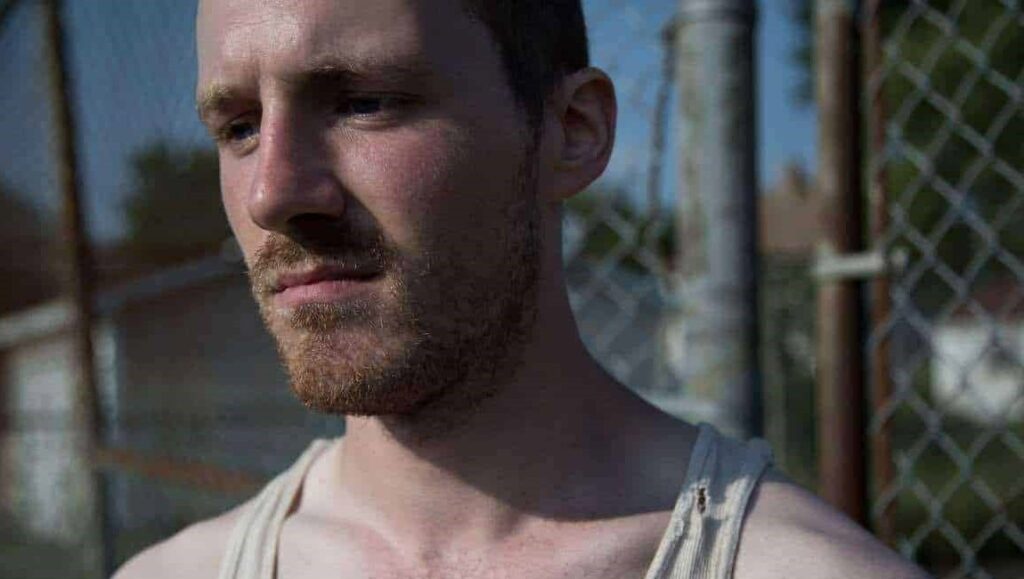As its title suggests, transformation is the subject of Ashley McKenzie’s feature debut, Werewolf—a film that is at once empathetic and unsentimental. McKenzie follows Blaise (Andrew Gillis) and Nessa (Bhreagh MacNeil), a methadone-dependent couple, as they navigate the myriad travails of daily life in the director’s native Cape Breton. At the mercy of both housing and healthcare bureaucracy, and dependent on the kindness of strangers and friends, the two attempt the Sisyphean task of simply scraping by. All the while, they tug along a lawnmower with which they attempt to make some money. But their central relationship becomes its own source of stagnation; so when Nessa attempts to move forward, the tenuous cords of their relationship begin to strain. (“It can be threatening when one person changes,” a social worker tells her.)
If the dramatic arc feels overly familiar, it’s the details, frequently lensed in expressive close-ups and accompanied by an intensely (and effectively) modulated score, that make the difference. Throughout, McKenzie employs a canny visual scheme, often dividing the image into horizontal and vertical planes, with Blaise and Nessa pushed to the edge of the frame, dominated by negative space and shut out by layers of pristine glass and cold bureaucracy. There’s also a visual fragmentation at play, the cycles of addiction and poverty practically driving their bodies to primal—even feral—need. It’s to McKenzie’s credit that despite some conventional beats, the final scenes remain intensely moving, at once liberating and tragic. The ambivalent closing image in particular—of Nessa, now on the other side of those pristine glass surfaces—offers no easy release.
Published as part of Vancouver International Film Festival 2016 – Future // Present.


Comments are closed.